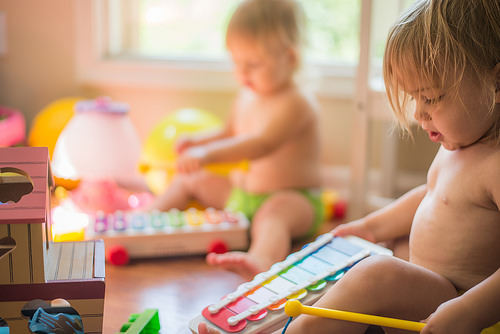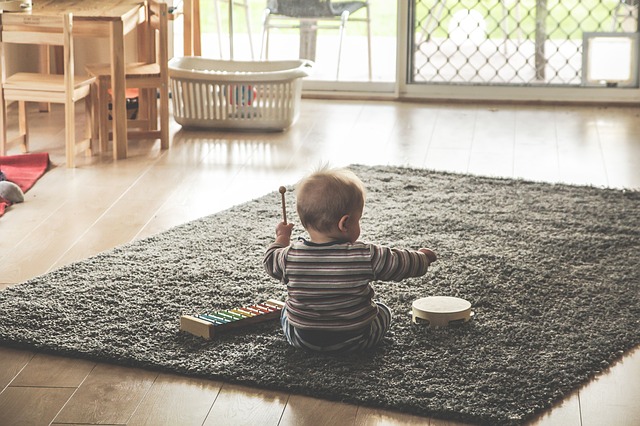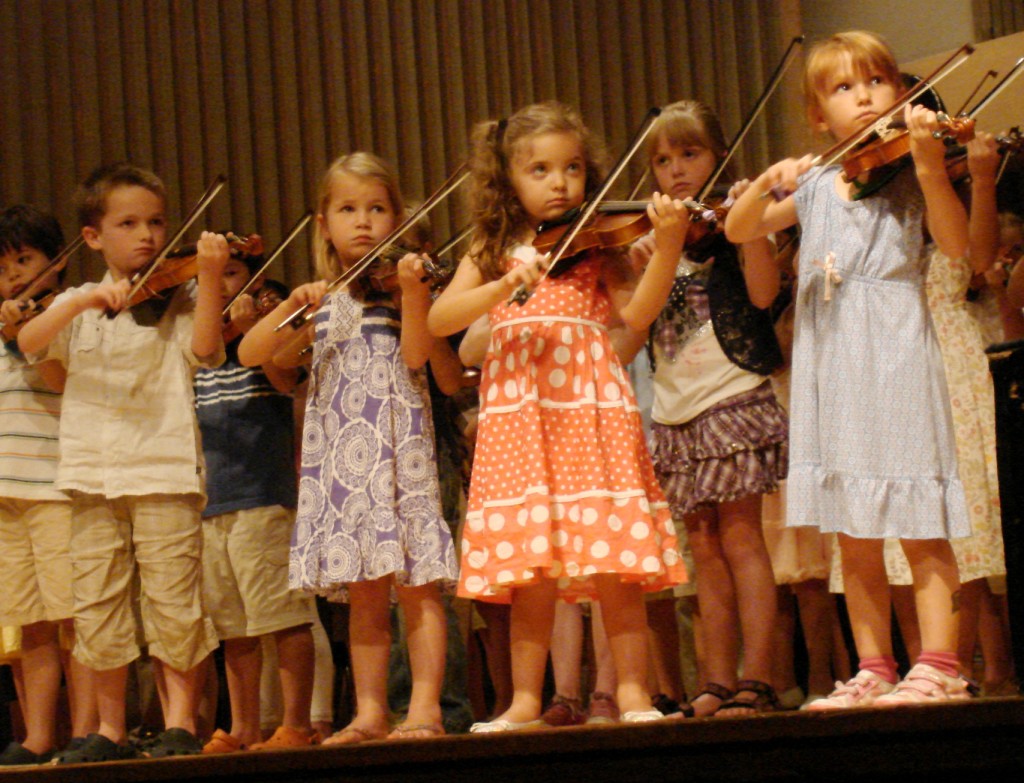There’s a lot of pseudoscience and controversy around the ‘The Mozart Effect’, particularly when it comes to the notion that parents can turn their children into high-functioning geniuses simply by playing them classical music at a young age.
Similarly, the efficacy of products such as The Baby Einstein range have long been under dispute.
But while Brahms’ serenades may not be a magic bullet which can dramatically increase a baby’s potential IQ, that’s not to say music can’t be a hugely positive factor in a child’s later development.
Far from it. In fact, new evidence has just emerged which strongly suggests that bonding with your child over music may be even more beneficial than doing so over regular reading sessions.
There’s already an established trend across numerous studies to show that those who learn an instrument exhibit an improvement in IQ – along with other benefits, both mental and physical.
This applies to both adults and children alike, but so far studies have focused almost exclusively on participants taking regular violin lessons and other formal music classes.
Lesser known still is exactly how musical play sessions play into childhood development.
A new study, however, has made some decent headway.
The Power of Music in Early Development
Conducted by the University of Queensland, it found that even just jamming with your kid during play time can have hugely positive impact that pays off just a couple of years later (and presumably beyond.)
The study was a big one. Working with parents of over 3,000 kids between the ages of two and three, the families took part in regular, informal music lessons at home – simply having fun making music as part of playtime.
Two years later, the progress of the children was followed up.
Turns out that shared musical activities in the home can pay dividends in the long run. There was a strong trend of positive benefits among the kids participating in the study, including an increase in:
- Attention longevity
- Pro-social skills
- Numeracy
- Emotional regulation
- Vocabulary
All pretty good areas for improvement, especially given they can be attained by just incorporating musical free-for-alls into playtime.
Of course, the fact that bonding over playtime has a positive influence on a child’s development isn’t particularly surprising. But as mentioned previously, what was surprising is that home music activities were found to be even more effective than joint book reading.
Improvements were reported by both parents and teachers, and later on measured directly by the researchers. While the study was Australian-based, controls were implemented to factor for cultural and demographic differences.
All fairly groundbreaking stuff, and it’s research that went on to win the research team a Music Trust Award for Research into the Benefits of Music Education.
But what parents of young children will really want to know is how to recreate these effects at home.
Here’s the low-down.
Implementing Music into Play Time
Violin classes and the like can be hugely beneficial later on in a child’s development, but as the study revealed, it’s the informal musical play earlier on that paves the way:
- Ditch toys that bleep and flash in favor of inexpensive, tactile musical instruments like bongos and other percussion instruments, followed by a toy piano or recorder later on. That said…
- Save yourself some money by raiding the kitchen cupboard. A pot and a wooden spoon is as effective as anything you can buy at a store, and far better than sitting them in front of a DVD.
- Don’t focus on a specific goal. Chaos is good! As long as the child is having fun exploring the process of making sounds, you’re doing a good job.
- It needs to be a shared experience in order to be effective, so block off some time to join in with musical play. It doesn’t need to be strictly regular, simply whenever you get the impression there’s some energy to burn off.
- If possible, try to face your child during the play session as this helps with the social bonding aspect of the exercise.
- They’ll learn structure and focus at a later date when undertaking piano or violin lessons; for now, simply encourage your toddler to enjoy making noise (even if they insist on playing the instrument in an unconventional way.)
Alongside all of the benefits to be had in your child’s development from shared musical activities, you’ll know doubt come to enjoy these bonding sessions as a parent.
In short, bring out the pots and pans, and makes some noise.
It’ll pay off in the long run.


